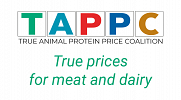Meat tax: what does the Dutch consumer want?
Researchers from Wageningen University (WUR) recently conducted an extensive study on public preferences for meat tax attributes in the Netherlands, the most livestock-intensive country in Europe. The study surveyed over 1,200 individuals, representative of the Dutch population. Understanding public preferences for the design of such a tax may serve as a starting point for increasing its political feasibility. In 2023, a meat tax was included in a draft agricultural agreement between the Dutch Ministry of Agriculture and a range of agricultural and food organizations. This tax would generate 600 million euros annually to reward farmers for providing ecosystem services.
The WUR researchers used a discrete choice experiment where participants were repeatedly asked to choose between two options. The baseline option was a Dutch tax on all meat products with tax revenues going to the Dutch State (without recycling the tax revenue). The options differed across four levels: products to bee taxed (all meat, exempt poultry, exempt organic meat), use of the tax revenues (general government budget, sustainable development of livestock sector, improvement of animal welfare in livestock sector, reduction of VAT on fruits and vegetables, compensation for lower income households), efforts of other countries (implement regardless, only if some EU countries join, only if all EU countries join), and additional costs for the average Dutch household (7, 15, 30, 60 euros per month due to the meat tax).
The results show that Dutch people have a (slight but significant) preference for a meat tax that exempts poultry or organic products, is implemented in a joint effort with several other EU countries, and earmarks revenues for specific purposes, with the preference for using revenues to reduce the value-added tax on fruits and vegetables being the strongest. Variants where the tax is applied to all meat products and where the revenues go to the government budget received the least support; variants focusing on sustainability in the livestock sector and animal welfare scored in between.
For the variables with significant standard deviation, the distribution is such that:
For excluding a levy on chicken ‘exempt poultry’: 44% of all respondents prefer the baseline and 56% prefer exempt poultry.
For a backstop of levy revenue for 0% VAT on fruit and vegetables ‘reduce VAT’: 11% prefer the baseline and 89% prefer reduce VAT.
For the option that all EU countries introduce the same tax on meat ‘all EU’: 54% prefer the baseline and 46% prefer all EU.
Comparison with the TAPP Coalition proposal
These results largely align with TAPP Coalition’s proposal to price meat and make fruits and vegetables cheaper. However, there are some differences. For example, the WUR study suggests that the production of organic meat per kilogram emits up to 150% more greenhouse gases than regular meat, whereas a report by CE Delft titled 'Pay as you eat dairy, eggs, and meat', published in January 2023 on behalf of TAPP Coalition, concluded that organic cheese, milk, and beef produce fewer greenhouse gas emissions per kilogram (for pork, chicken and eggs, organic is slightly more environmentally harmful, but not by 150%).
Additionally, TAPP Coalition polls found that Dutch consumers are less opposed to a meat tax than WUR researchers assumed. When a meat tax is combined with a lower tax on fruits and vegetables and financial assistance to farmers for sustainability efforts, about 55% of consumers support this proposal (IPSOS 2023, DVJ Insight 2019 and 2020).
TAPP Coalition will discuss the new WUR study with its partner organisations in September to determine whether our preferred variant should be slightly adjusted. Exempting organic meat from a tax already has the support of most TAPP Coalition partners, but exempting poultry does not. In the TAPP Coalition proposal, though, the tax rate on chicken is two to three times lower than on pork and beef.
The reason WUR researchers included a variant without a poultry tax in their study is that nearly 90% of meat-related greenhouse gas emissions are caused by beef and pork (see figure 13 in this report), and these types of (red) meat are also responsible for negative health effects. This is why Oxford University proposed to globally implement health motivated taxes on red and processed meat only. However, if poultry is exempted from a meat tax, people will buy it more often, leading to increased animal suffering: many more chickens would need to be slaughtered, and animal suffering is significant in the poultry sector. In TAPP Coalition’s proposal, people are indeed expected to eat less poultry, although this decrease is smaller than for beef and pork since these meats have a higher tax rate than poultry.
TAPP Coalition will also send the WUR study to Members of Parliament who will discuss a report from the Ministry of Finance on September 11 titled 'Belastingen in maatschappelijk perspectief' (Taxes in a Social Perspective). This report also includes a meat tax that could be introduced from 2026 to help achieve climate goals. In the Ministry's proposal, the tax rate starts at a very low level, aiming to reach the level proposed by TAPP Coalition for 2030 by around 2035.


